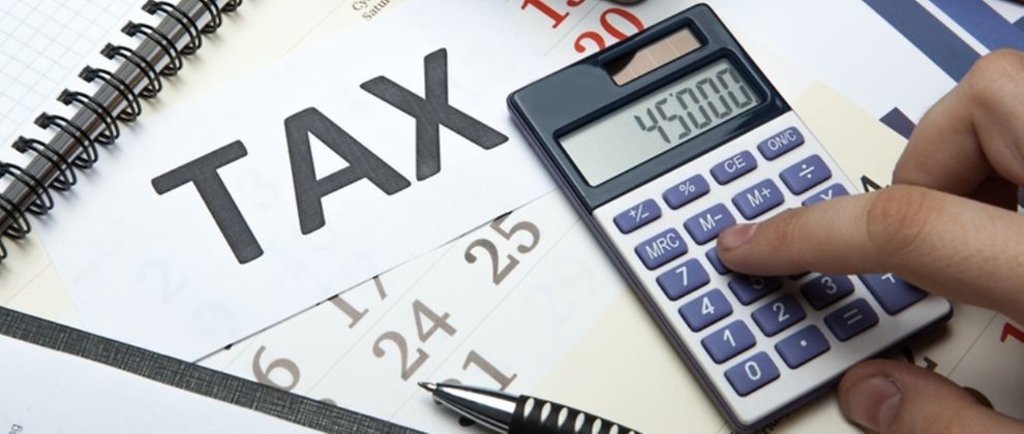

The Federal Inland Revenue Service (FIRS) has said receipts from tax now account for about 70 per cent of Nigeria’s total revenue.
The FIRS said other revenue lines, including oil, accounted for just 30 per cent of the country’s revenue.
Executive Chairman of FIRS, Muhammad Nami, disclosed this recently in Abuja when he made a presentation titled, “Weathering Economic Turbulence,” at an interactive session with stakeholders.
Nami called for the amendment of the country’s tax laws, saying most of them date back to pre-independence times.
He stressed that the country’s revenue situation was very dire, explaining that Nigeria has always relied on oil revenue for its budgetary needs, with little regard for revenue from tax.
He said the fall in oil prices, reduction of production quota, and oil theft had reduced the country’s revenue to critical levels.
The FIRS head revealed that the total Federation Account revenue for June 2020 was just N696 billion (about $2 billion), “which is equivalent to what a county in the United States spends.”
He said, “Nigerian economy is projected to contract by over five per cent in 2020 due to COVID-19 and other disruptions. Oil prices have plummeted (from $97.98 in 2012 to below $50 in 2020).”
He said despite efforts by the FIRS and Nigeria Customs Service (NCS) to drive up Value Added Tax (VAT) receipts, “Collection has indeed gone up, but Nigeria’s VAT gap remained at a pitiable 70 per cent, compared with South Africa at 12 per cent, Morocco at 28 per cent, and Zimbabwe at 38 per cent.”
Nami reiterated that Nigeria’s tax-to-Gross Domestic Product (GDP) ratio was currently about six per cent, compared to Egypt at 15 per cent, Ghana and Kenya at 17 per cent, and South Africa at 28 per cent.
The World Bank recommends a minimum of 15 per cent Tax to GDP ratio for economic growth and poverty reduction, he stated.
Nami stated, “A Debt Management Office (DMO) report indicates that about N1.21 trillion was used to service debt from January to June 2020.
“Over N3 trillion is proposed for debt servicing in 2021. The report further projects that Nigeria’s debt stock will grow significantly by end of 2020.
“God forbid that Nigeria should default in debt repayment obligations. Nigeria’s debt to revenue ratio is worsening – it is estimated at 538 per cent at the end of the fourth quarter, that is 190 per cent increase from 2019 figure (348%).”
Nami identified the problems of tax administration in the country to include the false belief that Nigeria is rich and does not require tax money, resistance to tax payment and tax being seen as an unnecessary burden, and lack of political action to tackle low level of tax payment.
He lamented that Nigeria was a mono-product economy and the whole economy revolved around crude oil. Thus, a slight change in oil price shakes the whole economy and jeopardises welfare, he said.
Nami stated that the widespread destructions that took place when the recent #ENDSARS protests were hijacked by hoodlums would have negative consequences for the country.
He said every effort should be made to improve domestic revenue mobilisation in view of the dwindling oil prices to prevent the country from falling into a debt crisis.
The FIRS boss said a debt crisis would exacerbate insecurity and political unrest in the country, and might also derail the programmes of the federal government.
In order to raise the country’s revenue performance, Nami charged all stakeholders with a clear political mandate to tackle low levels of tax payment and ensure simpler tax systems with limited number of rates and exemptions.
He suggested a reform of indirect taxes on goods and services, and called for the deployment of new technology and large data capabilities, and adoption of risk-based tax audits and examinations.
According to him, in response to the present revenue crunch, the FIRS has improved its administrative processes, carried out proper staff placement, restored staff-management relations, embarked on strategic capacity building for enhanced performance, and employed technology for improved service delivery
Similarly, the agency, Nami said, has disengaged its “Tax Audit Contractors,” decentralised tax audit and tax investigation functions, and enhanced stakeholder collaboration.
He said FIRS had also improved communication with taxpayers, made strategic moves to enhance revenue from indirect taxes, harmonised all tax provisions scattered in different laws, and restructured tax incentives for maximum benefit. He said the agency treated the issue of low tax payment as a national emergency deserving support from all stakeholders through political and legislative interventions.
Nami said FIRS had blocked tax loopholes and made more money available to the government.
-THISDAY
Ex-police officer kills two family members, one other over Badagry land The peaceful Yovoyan community in Badagry,…
Tuface spotted with Igbinedion’s granddaughter at Edo election tribunal Nigerian music legend Innocent Idibia, better known…
12-year-old 'Yahoo' trainee, others rescued in Lagos, training centre dismantled The Lagos State Police Command has…
Portable, Speed Darlington set for boxing match Controversial Nigerian artists Speed Darlington and Portable are poised…
Ondo bricklayer flees after wife gives birth to triplets A bricklayer, identified as Bayo Jeje, has…
Edo Gov Okpebholo wins round one as tribunal upholds his election The Edo State Governorship Election Petition…